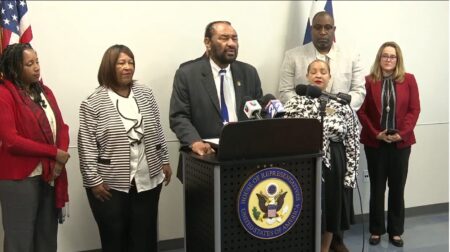In Houston's Sunnyside neighborhood – a historically Black community that had the lowest median income in the city as of 2020 – volunteers used to hand out nearly 20,000 boxes of food to residents every week. But now the program has been cut as local nonprofits have seen significant reductions in federal funding. U.
S. Rep. Al Green, a Houston Democrat, gathered with other local politicians and nonprofit leaders in the Sunnyside neighborhood on Friday to condemn the cuts to federal spending – particularly those that have impacted seniors – under the administration of President Donald Trump.

The congressman also pledged a $1,000 donation of his own personal money to the Houston Food Bank. Green noted that in March, the U.S.
Department of Agriculture slashed $1 billion in food assistance programs. That includes about $660 million for school programs and another $420 million that helped food banks and other local community groups. "Where is the waste, where’s the fraud, and where’s the abuse, and cutting $1 billion in assistance to a food program?" he asked.
RELATED: Houston Congressman Al Green says Tennessee rep used a racial slur by calling him ‘boy’ Sandra Hines, a community leader in Sunnyside, said many of its seniors live on small, fixed incomes. "A lot of them live on wages such as $200 (or) $400 a month," she said. "I’m on the ground serving.
I can tell you that because I know." Due to cuts in federal funding, the Houston Food Bank is facing an $11 million annual shortfall . The organization's government relations officer, Katherine Byers, said the food bank has had to cut 205 senior recipients from a program that distributed boxes of food to those in need.
"Hunger is a non-partisan issue," Byers said. "It is about ensuring that everyone has consistent access to nutritious food. This is a matter of dignity and public health for everyone.
".
Entertainment

Houston Congressman Al Green condemns federal cuts to food programs for seniors

In March, the U.S. Department of Agriculture slashed $1 billion in food assistance programs. That includes about $660 million for school programs and another $420 million that helped food banks and other local community groups.















